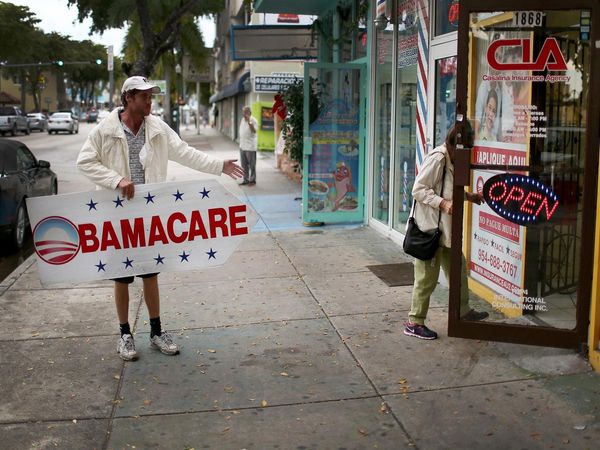
Popular restaurant chains which stopped taking cash during the pandemic have turned their backs on it long-term in the latest sign of Britain’s shift towards going cash-free.
Prezzo, Itsu and Côte Brasserie are on a growing list of restaurants that have gone card-only for good, citing reduced costs, quicker customer service and claims of improved hygiene.
Many branches of Starbucks and Burger King are also accepting card payments only, while Pizza Hut says it has decided to continue cashless “for the foreseeable future”.
The businesses were among thousands across the UK that stopped taking coins and notes when Covid-19 first spread. Restrictions have now eased, and research has found the risk of transmission from handling cash to be low – yet many shops and restaurants are still refusing to take it.
While Starbucks has not formally announced a cash ban, branches in Cambridge, Grimsby, Northumberland and London are among those accepting only card payments two years after the pandemic began. The chain said its stores had “gradually reintroduced cash” over the past year, but that “this may however vary from store to store”, as decisions lie with individual licensees.
Janette Foggo, 67, a support worker from Glasgow, said she was forced to leave Burger King after finding cash wasn’t accepted. “Just so you know, not accepting cash impacts so many people in support situations who don’t use cards,” she tweeted. Another customer wrote that her six-year-old daughter was “very sad” after being unable to spend her pocket money at a card-only store.
Prezzo, one of the chains to formally announce its move to cashless, said this made things “much simpler and quicker” for staff and customers at its 151 Italian restaurants.
Meanwhile Côte Brasserie, a French-inspired chain which has 80-plus outlets, said it decided to go permanently cash-free because of reduced local banking facilities” and for the “safety of its teams”.
And Itsu, the Asian-inspired chain with 73 stores, said being cashless lets it serve customers “safely and more quickly”, “with no distraction on cash handling policies”.

Many independent businesses have also taken the step of going cash-free, particularly in city centres, according to analysts. Other chains still take cash but say they “encourage” card payments, including Caffè Nero, Pizza Express and Greggs.
Nando’s, the chicken chain with more than 450 branches, opened its first cashless restaurant in Liverpool in December. It still takes cash at the others but a spokesman said that “could very well change in the future”.
Adrian Buckle, head of research at UK Finance, which represents the banking and finance industry, said there had been a “long-running trend away from cash even before the pandemic”. In 2008, about 60% payments were in cash, and by 2020, that figure was 17%.
The picture is not black and white, however, with many businesses that dropped cash during the pandemic now readopting it.
Caffè Nero has returned to cash, and Costa, McDonald’s and JD Wetherspoon still offer a choice of payment options. A spokesperson for Wetherspoons said lots of customers still liked to use cash, adding: “Turning down people who turn up with legal tender is controversial.”
Many retailers, the consumer group, including Aldi, Asda, Co-Op, John Lewis, Lloyds Pharmacy and Waitrose, have also pledged to continue accepting cash following a campaign by Which?
The growing number of businesses moving to card-only payment has led to calls from some to protect payment choice. In the US, cities including New York and San Francisco have banned businesses from refusing cash.
Charities including Age UK say failing to ensure its continued use risked freezing out the most vulnerable. Richard Kramer, chief executive of the disability charity Sense, said many would be lost without it: “If, for example, you are living with a learning disability you may only understand cash and not own a debit card. If you have a visual impairment you may struggle to use a card reader.”
About 1.2 million UK adults do not have a bank account and rely solely on cash, according to the Financial Conduct Authority.
Ron Delnevo, a spokesman for the UK Cash Supply Alliance, called for “payment choice” and claimed that a full move towards a cashless society could give payment companies a monopoly, enabling them to hike up their fees.
He added that many people simply enjoyed using cash, with more than 40 million using it more than once a month in the UK. “Some businesses are saying now, for our sake, we’re not accepting cash,” he said. “What about the public?”







